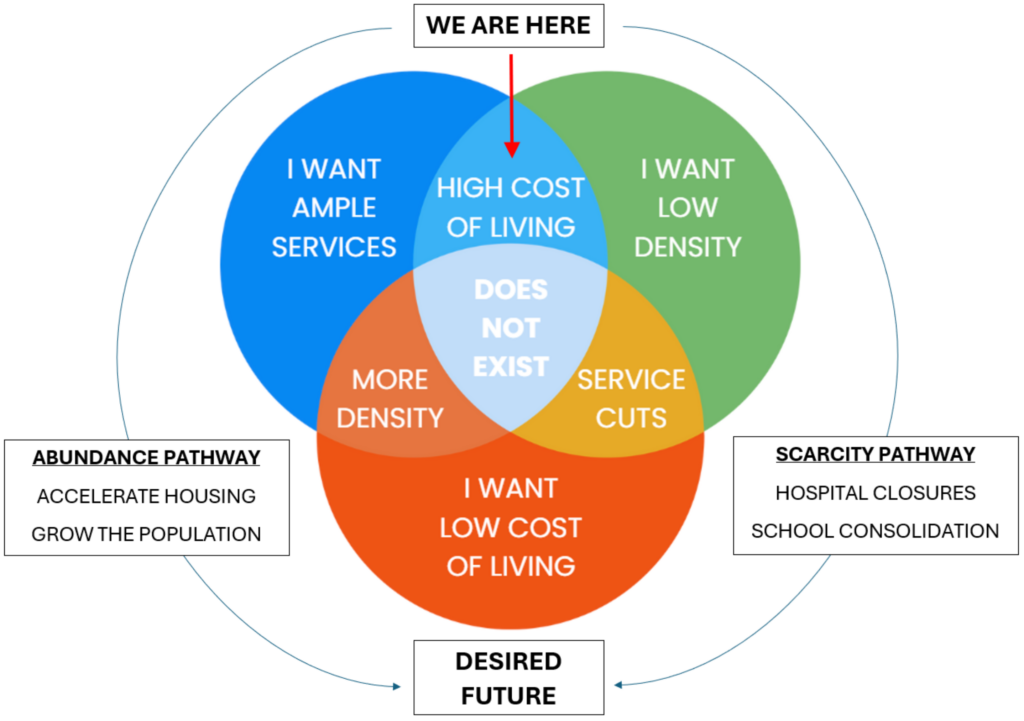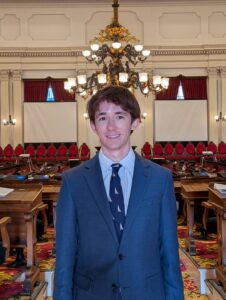The Vermont Economic Action Plan: Advocating for a Future of Abundance Rather than Scarcity
This week, Vermont Futures Project Executive Director, Kevin Chu, testified before the House General and Housing Committee and the Senate Economic Development, Housing, and General Affairs Committee, presenting key insights from the Vermont Economic Action Plan. Testimony brought forth conversations about actionable steps to address the root cause of many challenges impacting Vermont businesses, focusing on a future of abundance rather than scarcity.
To advance Vermont’s economic future and improve affordability, Chu emphasized that Vermont must focus on increasing its population to 802,000 by 2035 through recruitment and retention of working-age people. Attracting new people such as remote workers, military retirees, and international professionals, will strengthen the workforce, support business success, and broaden the tax base. Additionally, Vermont should aim to increase the labor force participation rate to 70% by 2035 by aligning education with employer needs and reducing barriers to employment.
The ability to grow businesses in Vermont ties directly to housing availability and infrastructure. The plan sets a target of 350,000 non-seasonal homes by 2035 and calls for reduced development timelines alongside 40% reductions in regulatory costs. Legislators engaged with the presentation content and discussed the intersections of growth and migration with infrastructure and transportation improvements.
The Vermont Futures Project’s testimony reinforced the urgent need to solve problems, quantified the scale of action needed, and outlined incremental steps to improve affordability. The testimony demonstrates the critical need for policy to be informed by data. The Vermont Chamber will continue working with lawmakers to advance policies that support business growth, streamline regulations, and improve economic opportunities across the state.
Access the full Economic Action Report here.



